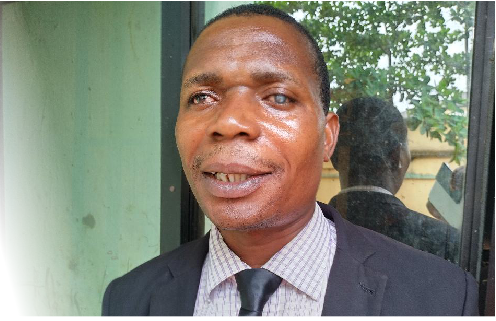•Govt official recalls how father-in-law frustrated plot by wife’s mother, siblings to disrupt his marriage’
By Okungbowa Aiwerie,
Bespectacled Nkem Ofili walked gingerly into the crowded main hall of Labour House in Asaba, the capital of Delta State last week escorted by a female volunteer in blue jeans. Led into a blue plastic chair in the middle of the hall, he sat in rapt attention as he listened to the visually impaired comedian, who doubled as the compere, thrilling the audience with jokes.
Ofili oozed confidence and self belief as he sat, calmly soaking up the convivial atmosphere. Across the hall, many other well dressed youths chatted animatedly in clusters while others engaged in quiet conversation with neighbours as they savoured a rare opportunity to socialise.
Although the occasion was an awareness campaign meant to sensitise the public about the challenges faced by the visually impaired, many other persons living with various forms of disability (PWDs) were present at the event. Hence the occasion designed to mark the annual national conference of the Delta State chapter of the Nigeria Association of the Blind turned into a carnival of some sort.
The event themed “Competence the Way Forward and Not Disability” attracted several government functionaries including the Executive Secretary of the Delta State Bursary and Scholarship Board, Mr Sunday Orishedere; the Delta State Commissioner of Police, Dr Mohammed Ali and a host of other dignitaries.
The group’s coordinator, Joshua Odjovworor, in an address, praised the Delta State Government for supporting PWDs in the state through its scholarship scheme, adding that enrollment of PWDs into various skill acquisition schemes by the state government was unprecedented.
He berated the society for discriminating against PWDs, noting that the various skills showcased by the visually impaired persons at the conference would help dispel such notion.
The Commissioner of Police, Dr Mohammed Ali, expressed sadness that many individuals with disabilities in the society have to beg for alms even as he urged public spirited individuals to assist government in creating empowerment schemes for them.
He also admonished PWDs against indulging in criminal activities, stressing that the law will take its cause regardless of whether a person is physically challenged or not.
He assured that the police was committed to protecting their rights and would continue to support their cause.
Addressing the gathering, an expert, Dr Isioma Edozien, listed the effects of visual impairment to include stigmatization, loss of independence and low productivity. She noted that if a child was born blind, there could be delayed social, emotional and cognitive skills which could lead to low level educational achievements on the part of the child.
Edozien debunked the notion that visually impaired persons are incompetent, stressing the need for societal support to enable visually impaired persons attain high level of confidence the society would embrace. She said although visual impairment is an obvious disability just like other physical conditions it attracts not only pity but also resentment.
She said a lot of people evince sentiments of pity or resentment because they are not only misinformed but were beclouded by the myths and lies handed down over the years. She lamented that the Nigerian environment was not friendly to the visual impaired in the society.
Edozien commended the Delta State Government for setting up five specialised schools with teachers that can handle children with hearing, visual, and other forms of deformity across the state. She stressed the imperatives of investing in modern teaching equipment, as modern teaching aids help in teaching concepts to special needs children.
She recommended inclusion is an effective strategy in special needs education, stressing that inclusion rather than exclusion was the right model.
In spite the obvious physical discomfort suffered by the visually impaired, however, Nkem Ofili believes that the greater danger to the well being of PWDs is stigmatization and rejection.
Ofili, an Information Officer in the Delta State public service, recalls that he was initially rejected by his mother-in-law when he proposed marriage to his wife, adding that he has many friends who were unable to get wives in spite of their great financial conditions because they are visually impaired.
He said: “Yes, it is normal in our clime. When you make advances, the society tends to reject you due to discrimination. But we thank God for financial stability.
“One was able to surmount the challenge, but I am aware that some of my friends have faced greater challenges on this issue.
“My own case was divinely inspired. When my present wife got to know me, she did not believe that I was blind.


